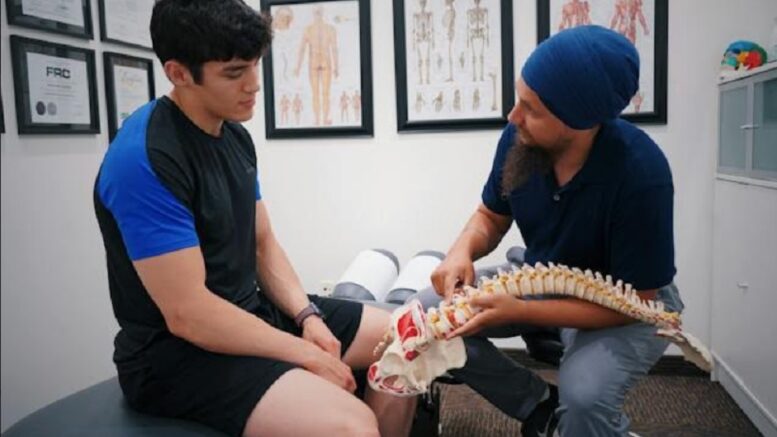Having to deal with persistent back pain may be crippling, negatively affecting your everyday activities and general health. While home remedies offer relief for many, there are situations where more specialized care becomes crucial. This article will talk about those 5 reasons that why taking a proactive approach to chronic back pain involves recognizing when home remedies may not be sufficient and promptly seeking the expertise of healthcare professionals to tailor a comprehensive treatment plan suited to your specific needs.
1. Persistent Pain Beyond Home Remedies:
Persistent pain that extends beyond the relief offered by home remedies warrants immediate attention from a healthcare professional. While initial measures like hot/cold packs and gentle exercises can alleviate mild discomfort, ongoing or worsening pain may indicate an underlying issue that requires expert evaluation. Consulting with a healthcare professional, such as a primary care physician, orthopedic specialist, or pain management specialist, is essential for a comprehensive assessment. They can conduct thorough examinations, order diagnostic tests if necessary, and formulate a tailored treatment plan based on the specific cause of the pain. Ignoring persistent pain may lead to complications and hinder the ability to address the root of the problem effectively. Timely consultation ensures that appropriate medical interventions can be initiated, improving the chances of successful pain management and promoting overall well-being.
2. Gradual Increase in Pain Severity:
Experiencing a gradual increase in pain severity is a concerning signal that merits prompt medical attention. While mild discomfort can often be managed with home remedies, a progression in pain intensity may suggest an underlying issue that requires professional evaluation. It’s crucial not to dismiss the significance of persistent or worsening pain, especially if it starts spreading to other areas of the body. Seeking medical advice becomes imperative to identify the root cause of the escalating pain. Healthcare professionals, such as physicians or specialists, can conduct comprehensive assessments, including physical examinations and diagnostic tests, to pinpoint the source of the pain accurately. Timely intervention in the face of escalating pain allows for the implementation of appropriate treatment strategies, preventing potential complications and enhancing the chances of successful pain management. Ignoring the gradual increase in pain severity may lead to delayed diagnosis and hinder the effectiveness of interventions aimed at addressing the underlying condition.
3. Numbness, Tingling, or Weakness:
The presence of numbness, tingling, or weakness in the legs or arms is a significant indication of potential nerve involvement and should not be overlooked. These symptoms may suggest various underlying issues, such as nerve compression, inflammation, or other neurological conditions. Any interference with the nerves’ ability to transfer messages from the brain to the body’s other organs might result in anomalies related to the senses or weakness. Ignoring or neglecting such signs could result in further complications or the progression of an underlying condition. To determine the underlying cause of the symptoms, a medical specialist, such as an orthopedic specialist or neurologist, can do a comprehensive examination that may involve diagnostic testing like imaging or nerve conduction investigations. Timely intervention not only helps in understanding the nature of the issue but also allows for the implementation of appropriate treatments to address the underlying cause and alleviate the associated symptoms.
4. Impact on Daily Activities:
When chronic back pain begins to significantly impact your daily activities, such as walking, standing, or even sleeping, seeking consultation with a healthcare provider becomes imperative. The continuous disturbance brought on by pain indicates that a medical professional’s evaluation is necessary. In certain situations, a spine specialist can provide specific knowledge in identifying and managing spine-related disorders. If you reside in Phoenix, consider a spine specialist in Phoenix or near the area where you reside, who with their knowledge and experience, can conduct a comprehensive assessment to determine the root cause of the chronic back pain. Once the underlying cause is identified, the spine specialist can develop a personalized treatment plan tailored to address the specific issues contributing to the pain. Seeking the expertise of a spine specialist ensures that you receive targeted and effective care, helping you regain control over your daily activities and improve your overall quality of life.
5. Unexplained Weight Loss or Fever:
The occurrence of unexplained weight loss or fever alongside back pain is a red flag that necessitates urgent medical attention. While back pain itself can result from various causes, the presence of systemic symptoms like weight loss and fever may indicate a more serious underlying condition. Unexplained weight loss can be associated with certain health issues, including infections, inflammatory disorders, or malignancies. Likewise, the presence of fever suggests that the body is responding to an inflammatory or infectious process. When these symptoms are coupled with back pain, it raises concerns about potential systemic involvement. In such cases, prompt medical evaluation is crucial to identify the root cause of these symptoms and initiate appropriate treatment. Healthcare professionals, such as primary care physicians or specialists like rheumatologists or infectious disease specialists, may conduct a thorough examination, order diagnostic tests, and consider imaging studies to determine the nature of the condition. Early intervention is essential to address any underlying health issues and prevent the progression of the condition, ensuring the best possible outcome for the individual’s health and well-being.
Conclusion:
While home remedies are effective for many, understanding the signs that indicate when they aren’t enough is crucial for managing chronic back pain. Seeking professional medical advice promptly ensures a comprehensive diagnosis and tailored treatment plan, promoting better long-term outcomes. Understanding the signs that indicate the limits of home care can lead to timely and effective medical treatment.
